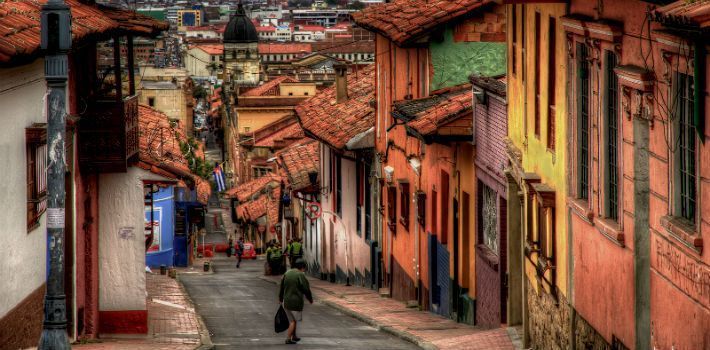
EspañolHow do you reduce the level of violence in a society, while also allowing individuals the freedom to pursue their various ends? Is the mere presence and natural growth of norms of coexistence enough, as Friedrich Hayek posited, or do we require additional values, codified in specific rules?
In our increasingly politically correct era, elitist opinion leans heavily towards the need for additional values.
Consider the case of Bogotá Mayor Gustavo Petro. Last week, he announced his plan to build houses for impoverished victims of violence. Most notably, the houses are set to be built in some of the most affluent areas of the city.
Petro says we need this policy to reduce the “segregation” that the city’s poorest residents suffer from, isolated in southern Bogotá. He believes he can simply force the rich to accept and include the poor.
Many development specialists, including the director of UN Habitat in Colombia, have spoken in agreement with the mayor’s intent. However, they point out that the program is not fully developed, its financing is not secured, and it plays on class warfare. Further, even if the project comes to fruition, it will not solve the problem. Among a host of implementation problems, there will not be enough houses, and the families will struggle to afford goods and services in the upscale areas where the construction is planned.
They are correct all on counts, except in their support for the spirit of the project as laudable. It isn’t.
If forced segregation exists in a society (in keeping with the definition of the term), it is the result of direct state action. It requires explicit policies and enforcement for it to be maintained against people’s wishes.
It may be true that Bogotá lacks close, cordial relationships between the “rich” and the “poor,” so Petro is attempting to engineer how these relationships are formed. He believes he — and his team of self-proclaimed virtuous angels — can solve whatever divides exist by changing the geographic arrangement of a few hundred individuals.
Of course, this will not happen. Instead, this measure will generate increased tension, including the potential for violence. Residents are already making legal challenges against the policy, but Petro is forging on, apparently protected by his omnipotent post.
The problem for Petro and his followers is their conception of who the rich are. Within this demographic, depending on where you draw the cutoff, there are hundreds or thousands of individuals, who in many cases have very little in common. Of course, among them there will be some less pleasant people who have contempt for the poor, but that does not justify an imposition on all of them.
On the other hand, this policy demonstrates a deluded vision of poverty. Those implementing it see the poor as incapable and, in contrast to the rich, full of virtue and positive attitudes. In this regard, the mayor is simply turning a blind eye to the truth. He is also behaving condescendingly towards people who have already suffered so much.
Petro’s plan is yet another example of social engineering, stemming from his misguided understanding of what life in modern society should be like. Instead of attempting to impose virtue — as if that were possible — the mayor and his followers should bring down the barriers that impede employment and wealth accumulation.
The mayor should also respect the dignity of individuals, be they rich or poor. Poverty is an economic issue, and cannot be solved by imposing values on others — much less by transporting people, like cattle, from the south to the north.
Translated by Alex Clark-Youngblood. Edited by Fergus Hodgson.
 Versión Español
Versión Español












